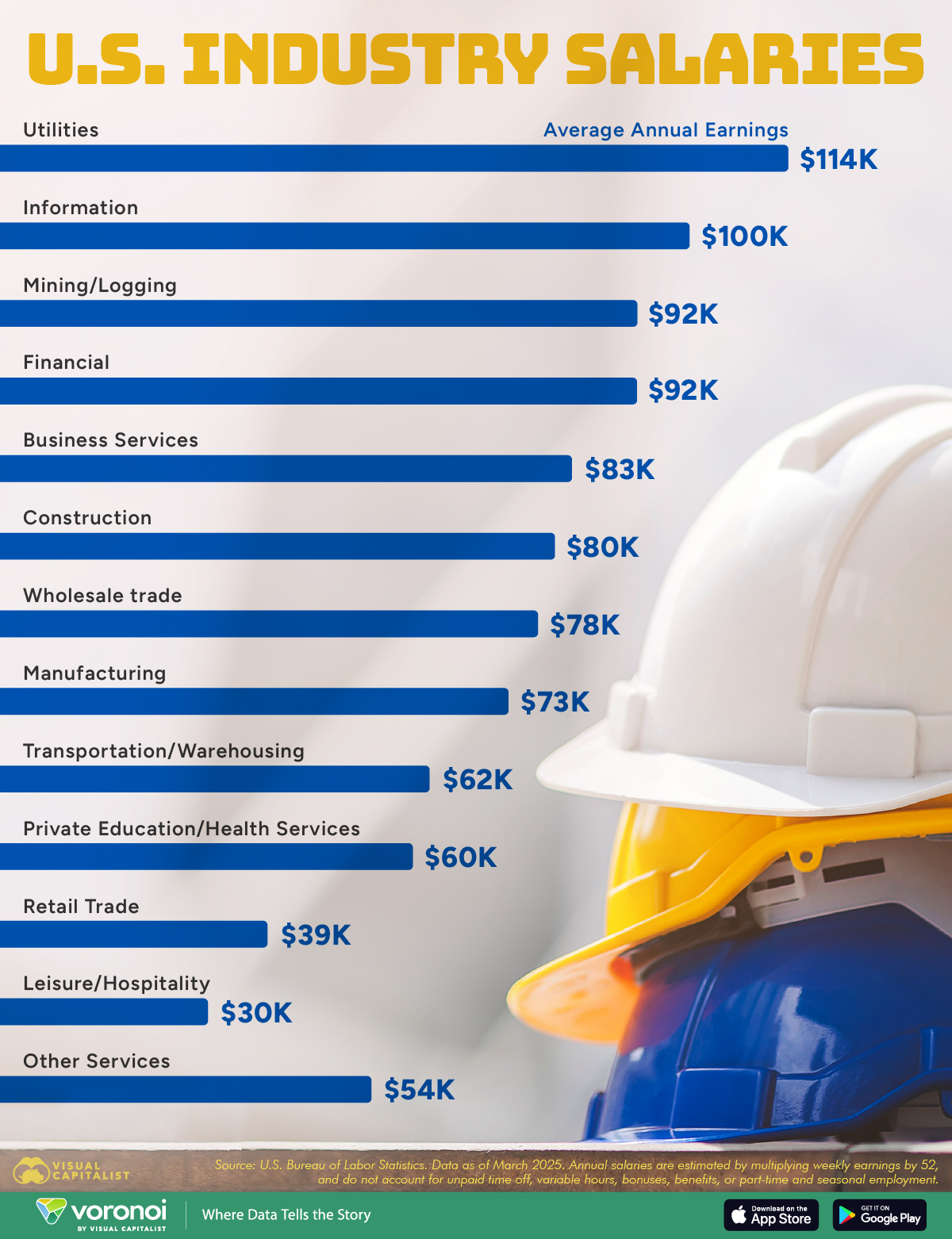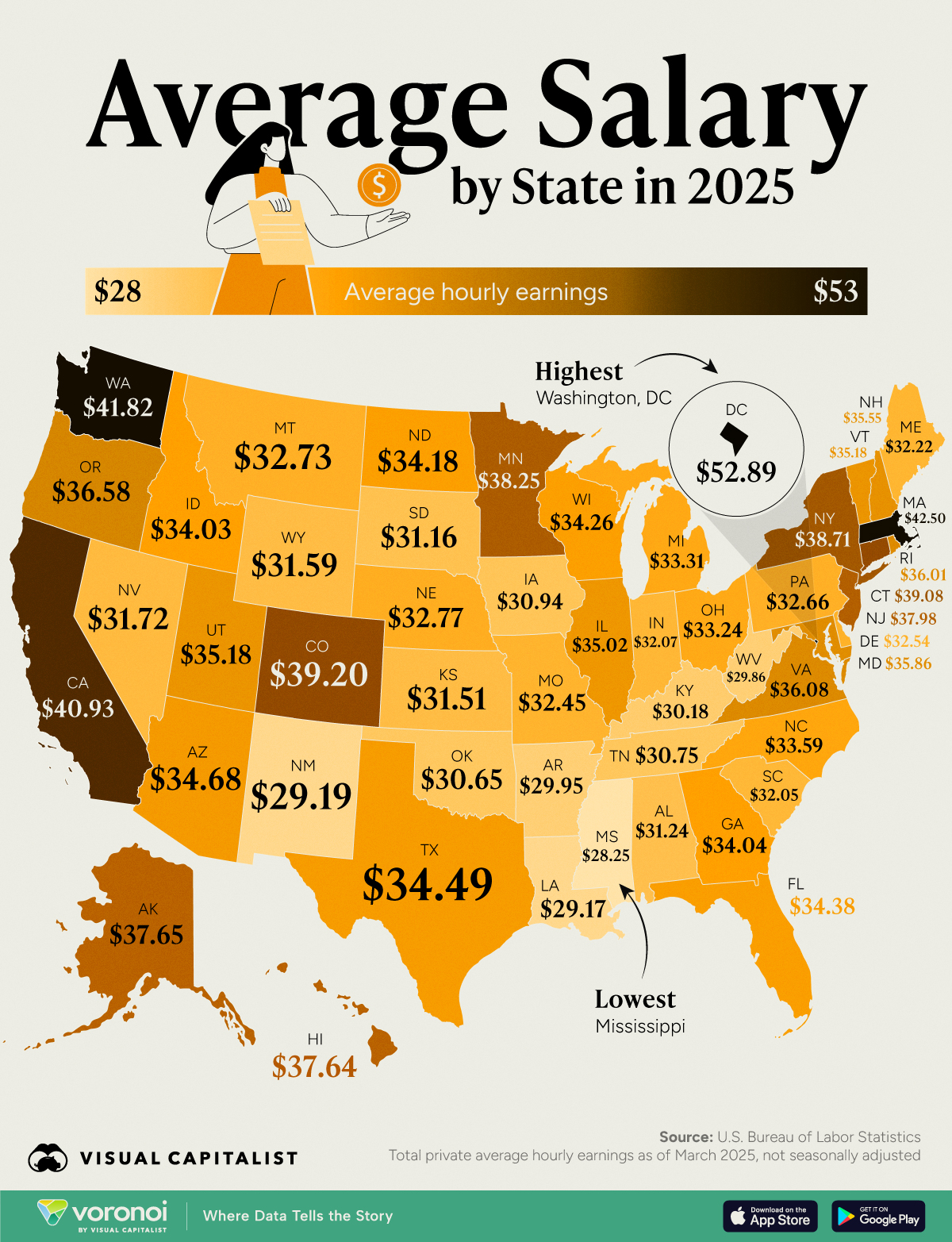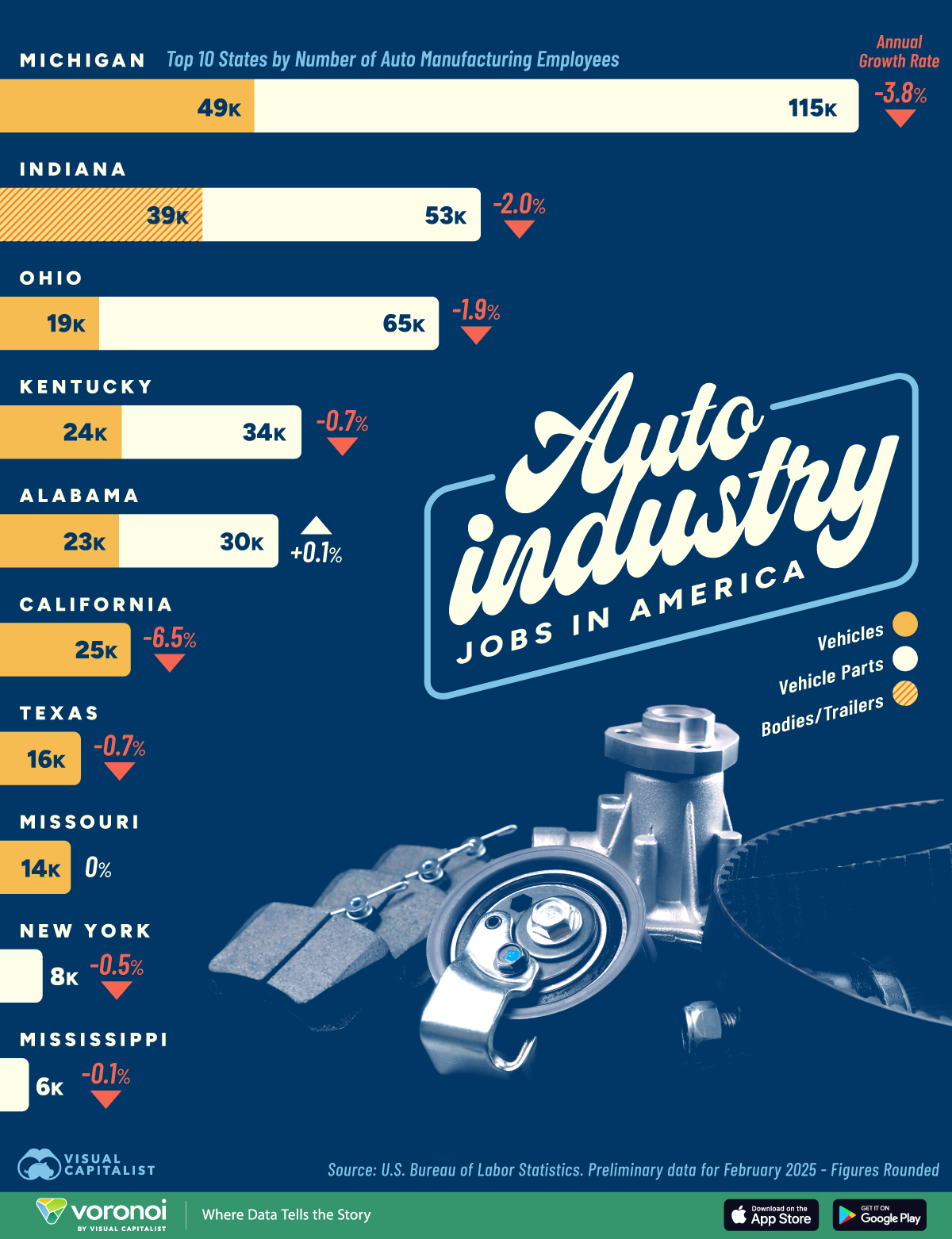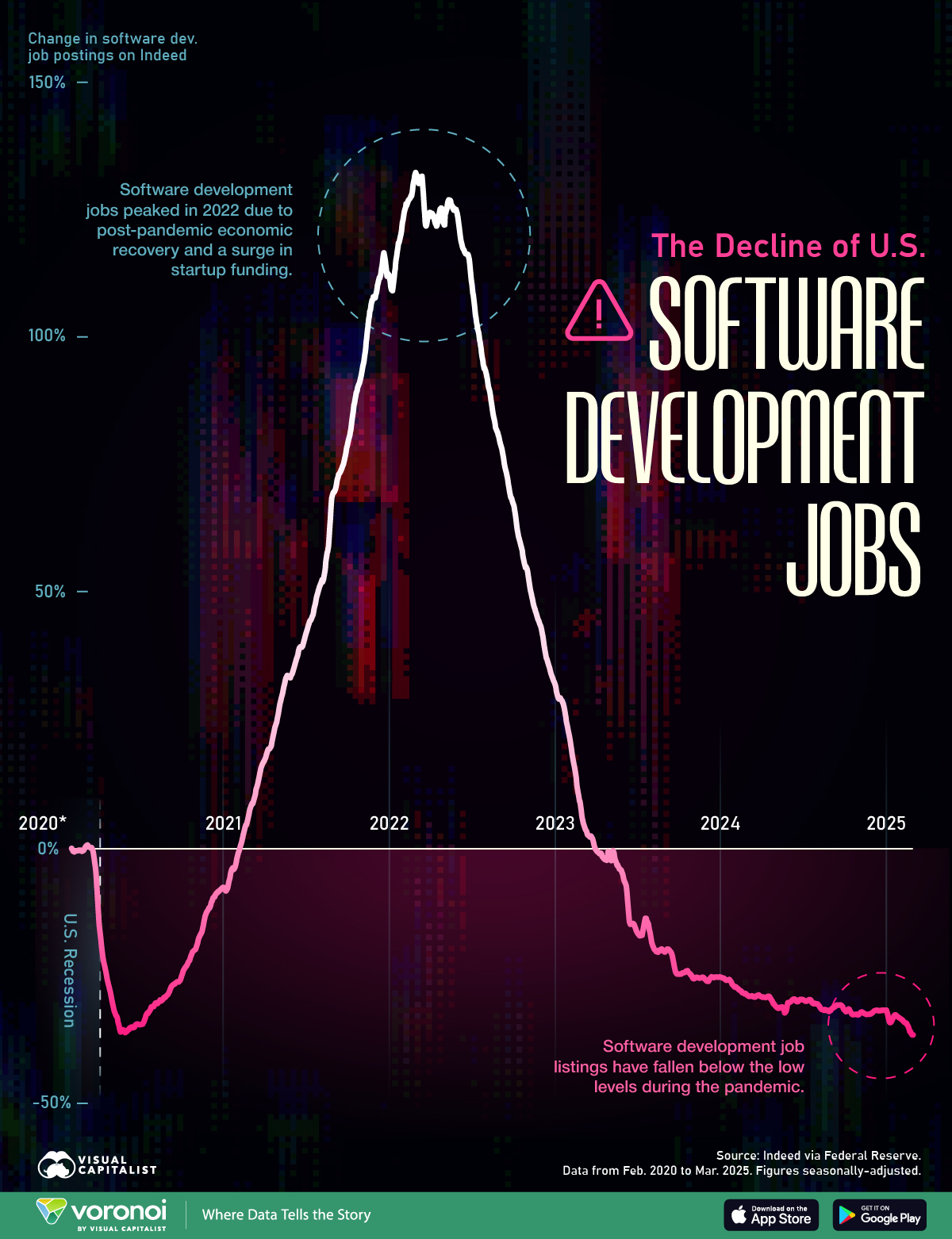Visualized: U.S. Employment by Industry in 2025
![]()
See this visualization first on the Voronoi app.
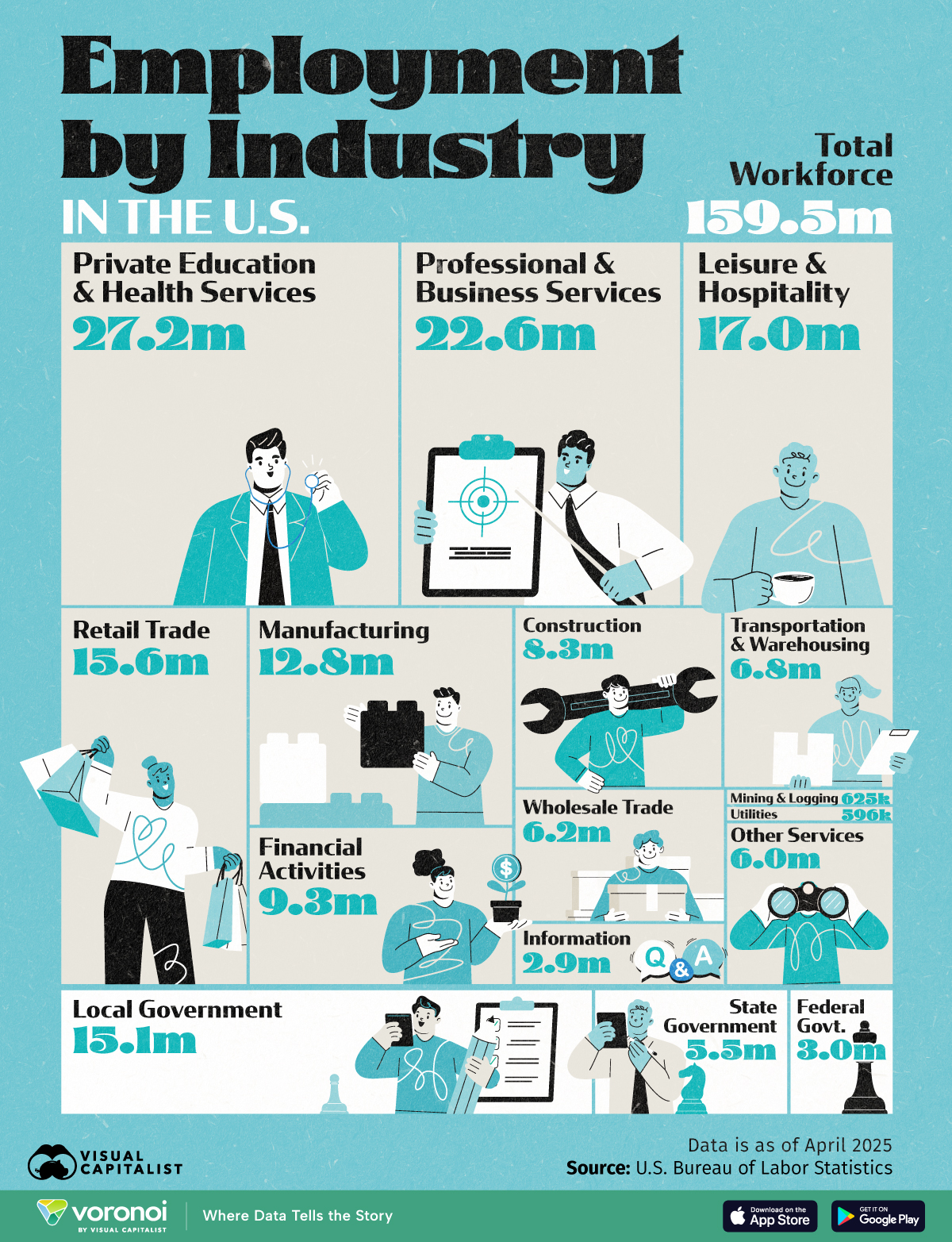
Use This Visualization
Charted: U.S. Employment by Industry in 2025
This was originally posted on our Voronoi app. Download the app for free on iOS or Android and discover incredible data-driven charts from a variety of trusted sources.
